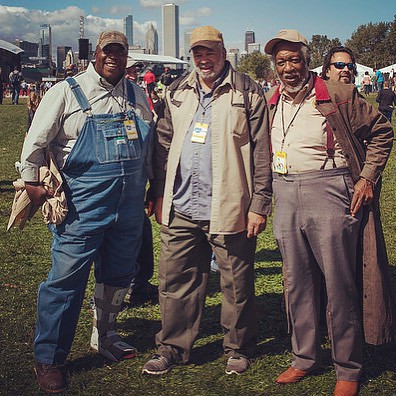 |
| Harvesting onions on land owned by Black farmers. |
Founded more than fifty years ago,
THE FEDERATION OF SOUTHERN COOPERATIVES and its Land Assistance Fund has been supporting the ownership of land, especially farm land, by Black and other low income farmers. Essentially 22 already-existing cooperatives from nine States formed the organization on the premise that together they could accomplish more than separately.
The focus throughout its existence has been in three areas: Developing cooperatives and credit unions to enhance the quality of their own lives and that of their communities; supporting and advocating for public policies that support low income farmers and the rural communities in which they live; and protecting and expanding landed property of African-American farmers in the South. The Federation has been operating in Georgia, Alabama, Mississippi, Kentucky, North Carolina, and South Carolina.
Over the years between 1910 and 1997, Black farmers found that they were frequently denied loans from the federal government. That led to land acreage moving out of the hands of Black farmers at a much faster pace than that for white family farmers. So, the Federation launched a class action suit against the USDA, resulting in the largest settlement in US history - a total of $1.01 billion being distributed among 15,600 Black farmers.
Despite its lengthy history, the majority of Americans have probably never heard of The Federation of Southern Cooperatives. Even so, it is well-known among cooperatives and in the food industry. Its executive director from 1985 to 2015 was Ralph Paige, who was inducted into the Cooperative Hall of Fame in 2004. He was recognized because "under his guidance the Federation has developed more than 200 units of low-income housing, 18 community credit unions, 75 cooperatives, and an award-winning rural training center."
Just last year, John and Carol Zippert were also inducted into the Cooperative Hall of Fame. Mr. Zippert was the director of the Rural Training and Research Center in Epes, Alabama, part of the Federation, for 45 years. In this role, he "helped former tenant farmers form the Panola Land Buyers Association buy 1,164 acres of land in 1970." In addition, he helped develop the "Southern Grassroots Economies Project, which works to build democratic ownership in the US South and hosts CoopEcon, an annual training institute for cooperative members." Carol Zippert was equally as busy over the years, founding and presiding over the Greene County Employees Federal Credit Union, which serves residents in one of the poorest counties in the US and, even with that challenge, "accumulated more than $1 million in assets."
 |
| A group of youth attending a voting summit. |
Cornelius Blanding, the current executive director, noted, "[O]ur history is a shining example of what is possible when limited resource people and communities pool their resources and work cooperatively to solve their common problems and build organizations that are owned and controlled by those that use and benefit from them." Nonetheless, the Federation continues to grow and develop more programs, not resting on its laurels from more than 50 years of existence. Even more, it continues to demonstrate the power of working together and being able to accomplish more than just one person or group working alone.
 |
| Mississippi farmers (left to right) Daniel Teague, Charles Houston, and Ben Burkett. |
Thanks for information from this Facebook page:
https://www.facebook.com/pg/federationsoutherncooperatives/about/?ref=page_internal; this article:
https://nonprofitquarterly.org/2017/11/06/successful-historic-co-op-federation-supporting-black-farmers-turns-50/; and the above link.





